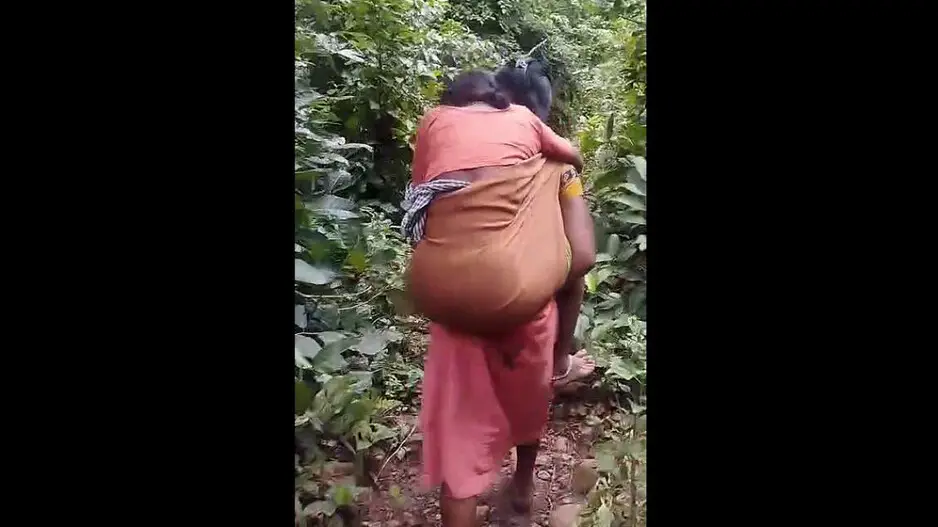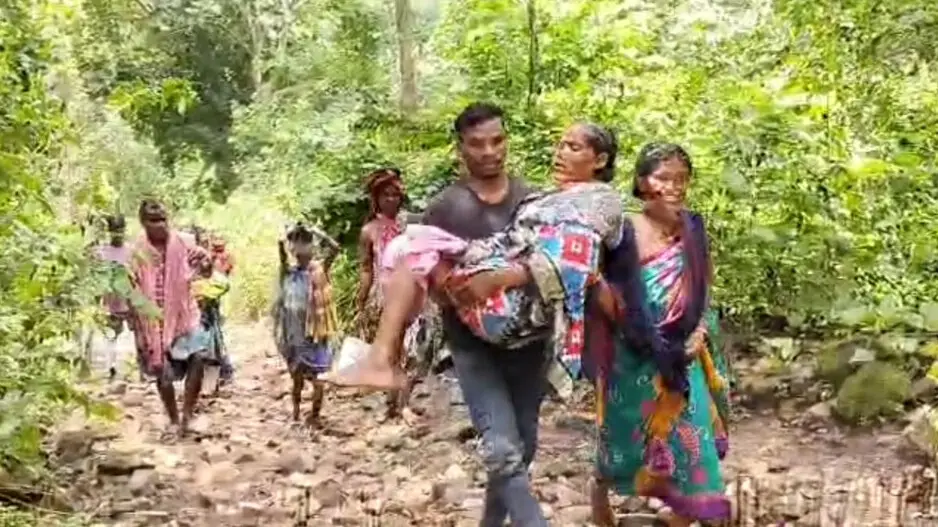by Aswini Kumar Darjee
Bhubaneswar-In today’s India, where national policies boast of expressways, digital corridors, and medical tourism hubs, there remain corners of the country where life still hangs on the edge of a broken footpath, a missing road, or a delayed ambulance. The harshest stories often emerge from the dense forests and tribal regions of Odisha, where road connectivity is not just a matter of development—it is a matter of life and death.
The haunting image of a young girl carrying her snake-bitten mother on her back through five kilometers of forest in Kandhamal is not just a moment of raw human courage—it is a testimony to systemic neglect. Despite her desperate efforts, the mother, Balamadu Majhi, died before reaching medical help. With the ambulance stranded miles away due to nonexistent roads, Rajani Majhi had to brave the jungle, pitch darkness, and terrain no vehicle could cover. By the time help arrived, it was too late. Her mother died on the hospital bed. Then again, there was no vehicle to carry the body back—only a cot on weary shoulders.

This is not an isolated incident. Just days earlier, in Nabarangpur district, two pregnant women had to be transported—one on a cot, another on a tractor—due to the inability of ambulances to reach their villages. In Tentulikhunti and Raighar blocks, families carried their loved ones across kilometres of hostile terrain just to reach the nearest vehicle. In one case, a woman gave birth en route, on a forest trail, because no vehicle could reach her in time. She was later taken to hospital, but the ordeal could have easily turned fatal.
In Kalahandi, another expectant mother, Hiramani Santa, was carried three kilometres on a cot through thick forest after experiencing labour pains. The ambulance service was called, but could only reach the roadhead far from her village in Amapani Panchayat. She gave birth on the way before even reaching the vehicle. While the baby survived, her condition remained critical, exposing the cruel fate of many tribal women whose deliveries take place not in the safety of medical institutions, but under open skies, on leaf-covered stretchers.
These are not tragedies born of fate. They are consequences of failure—failure to bring essential infrastructure to places that need it the most. When roads do not exist, even the best healthcare schemes fall apart. Ambulance helplines become meaningless when vehicles can’t reach their destinations. In these dark and forgotten corners, hope depends not on policies, but on people’s feet—on daughters, neighbours, and ASHA workers who walk miles carrying patients on bamboo stretchers and wooden cots.

Despite countless government missions focused on rural development, these villages remain disconnected, unheard, and unseen. No matter how many awareness camps are held, how many hospital beds are added, or how many schemes are launched—none of it matters if the patient cannot make it to the hospital alive.
The silence that follows such deaths is louder than any policy promise. Every untimely funeral, every child left motherless, every journey made on foot through pain and panic asks a single, burning question: is this the India we promised its poorest citizens? Where smart infrastructure blooms in cities, but death arrives quicker than an ambulance in its villages?
If a mother must die on her daughter’s back, if a woman must deliver on a cot in a forest, if a child must become an orphan due to a road that was never built—then no progress is truly complete. Until the cries from these unreachable villages are heard in the halls of policy and Parliament, true development will remain a mirage in rural India.



